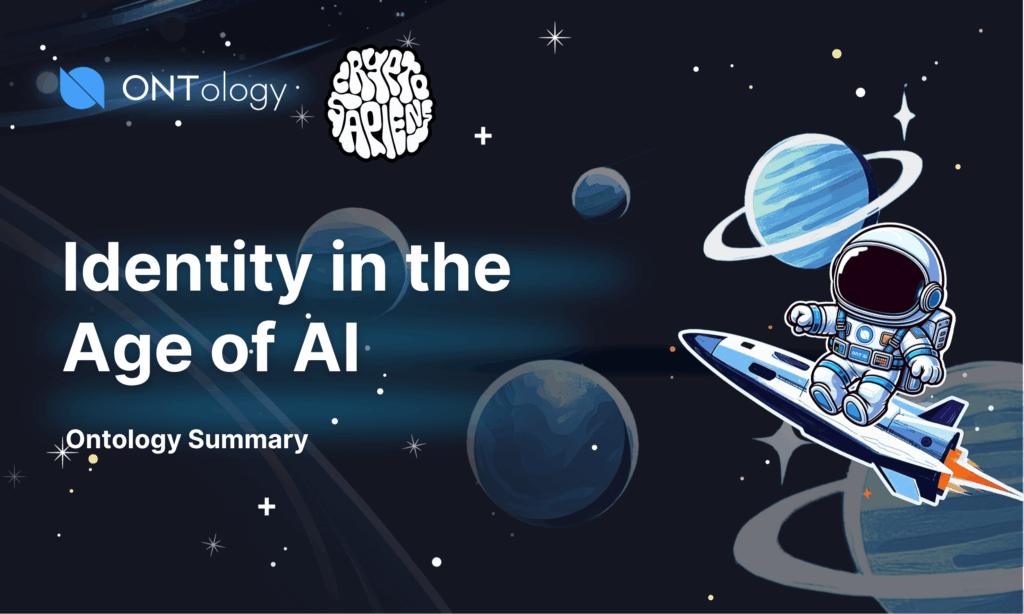What does this mean?
Identity, privacy, and AI are colliding fast. In this community conversation, builders and advocates examined who should own identity online, how to protect privacy, and how AI agents change the trust model for everything we do on the internet.
Featured speakers
- Humpty — long-time contributor and advocate of decentralized identity and privacy
- Geoff — veteran ecosystem builder and Head of Community at Ontology
- Barnabas — grassroots organizer driving Web3 education and adoption across Africa
Five core takeaways
Ownership and agency come first
Web3 should let people own their identity and control what they share. Identity is not a wallet address. It is a richer record that reflects consent and context.
“You are in control of your data, and you get to choose what you want people to see.” — Barnabas
Privacy with portability
Identity must work across apps and chains while preserving privacy. Single-chain IDs limit users.
“Portable identity should not work only on one chain.” — Humpty
Design for everyone
Education and simple UX are essential so new users can participate without feeling overwhelmed.
“Removing barriers is essential to building community.” — Geoff
AI needs attribution and reputation
As AI agents multiply, we must evaluate outputs and the credibility of agents and their builders.
“We need attribution to know if a result is good, outdated, or hallucinated.” — Humpty
A builder’s opening
There is real opportunity to launch AI apps and agents with verifiable identity and reputation that users can trust.
“Start thinking about how you can develop those AI apps to launch in the marketplace.” — Geoff
Bigger picture
Identity is becoming shared infrastructure. It underpins privacy, enables reputation, and helps us decide which people or agents to trust. As AI agents begin to outnumber humans online, transparent identity and reputation will guide safe participation for everyone.
TL;DR
User-owned identity must be private and portable. Education and simple UX bring people in. AI raises the stakes for attribution and reputation, which is a clear opportunity for builders to ship trustworthy agents tied to real user intent.

